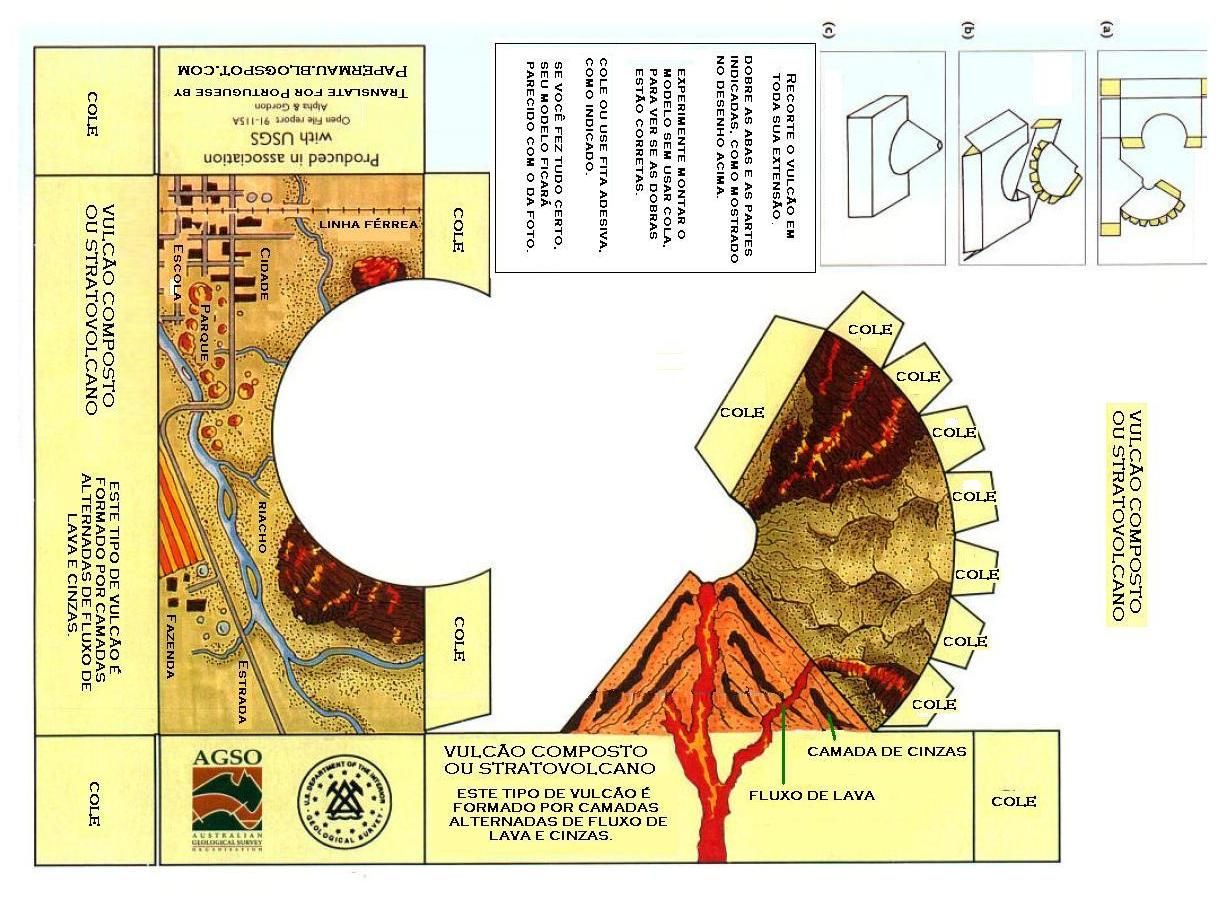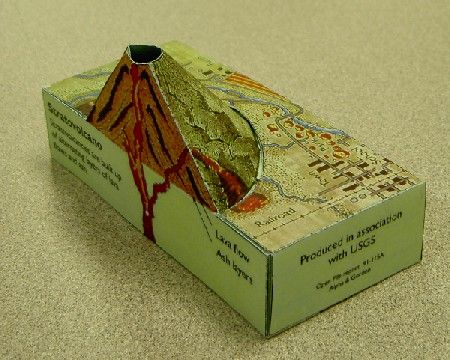A volcano is an opening, or rupture, in a planet's surface or crust, which allows hot magma, volcanic ash and gases to escape from below the surface.
Volcanoes are generally found where tectonic plates are diverging or converging. A mid-oceanic ridge, for example the Mid-Atlantic Ridge, has examples of volcanoes caused by divergent tectonic plates pulling apart; the Pacific Ring of Fire has examples of volcanoes caused by convergent tectonic plates coming together. By contrast, volcanoes are usually not created where two tectonic plates slide past one another. Volcanoes can also form where there is stretching and thinning of the Earth's crust in the interiors of plates, e.g., in the East African Rift, the Wells Gray-Clearwater volcanic field and the Rio Grande Rift in North America. This type of volcanism falls under the umbrella of "Plate hypothesis" volcanism.
Intraplate volcanism has also been postulated to be caused by mantle plumes. These so-called "hotspots", for example Hawaii, are postulated to arise from upwelling diapirs from the core-mantle boundary, 3,000 km deep in the Earth. - Wikipedia
 Vulcão é uma estrutura geológica criada quando o magma, gases e partículas quentes (como cinzas) escapam para a superfície terrestre. Eles ejectam altas quantidades de poeira, gases e aerossóis na atmosfera, interferindo no clima. São frequentemente considerados causadores de poluição natural. Tipicamente, os vulcões apresentam formato cónico e montanhoso.
Vulcão é uma estrutura geológica criada quando o magma, gases e partículas quentes (como cinzas) escapam para a superfície terrestre. Eles ejectam altas quantidades de poeira, gases e aerossóis na atmosfera, interferindo no clima. São frequentemente considerados causadores de poluição natural. Tipicamente, os vulcões apresentam formato cónico e montanhoso.A erupção de um vulcão pode resultar num grave desastre natural, por vezes de consequências planetárias. Assim como outros desastres dessa natureza, as erupções são imprevisíveis e causam danos indiscriminados. Entre outras coisas, tendem a desvalorizar os imóveis localizados em suas vizinhanças, prejudicar o turismo e consumir a renda pública e privada em reconstruções. Na Terra, os vulcões tendem formar-se junto das margens das placas tectónicas. No entanto, existem excepções quando os vulcões ocorrem em zonas chamadas de hot spots (pontos quentes). Por outro lado, os arredores de vulcões, formados de lava arrefecida, tendem a ser compostos de solos bastante férteis para a agricultura.
A palavra "vulcão" deriva do nome do deus do fogo na mitologia romana Vulcano. A ciência que estuda os vulcões é chamada vulcanologia. - Wikipedia
Adaptei o modelo para a língua portuguesa, pois creio ser útil para trabalhos escolares.
Link to the model, in English and Portuguese:
English Version: Volcano.Paper.Model.by.Think.Quest.Org
Versão em Português: Vulcão.by.Think.Quest.Org


A versão em português o link tá quebrado, pode arrumar por favor.
ReplyDelete